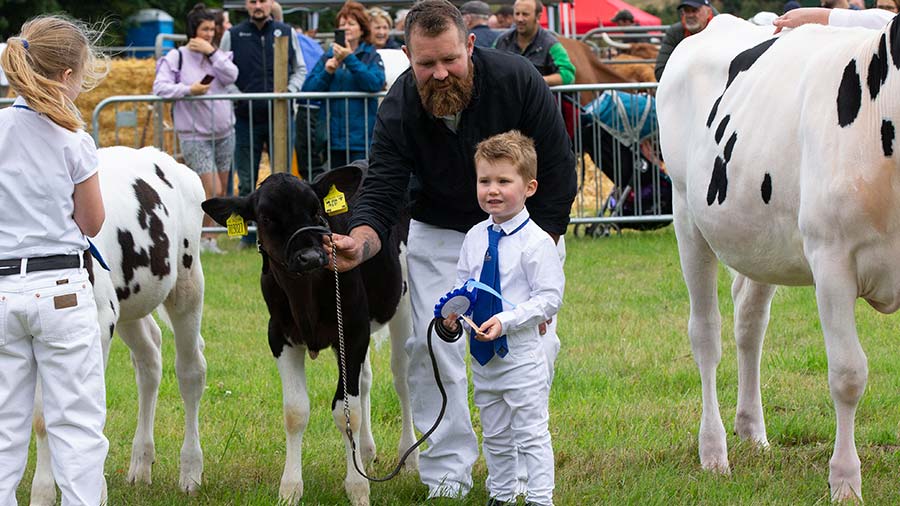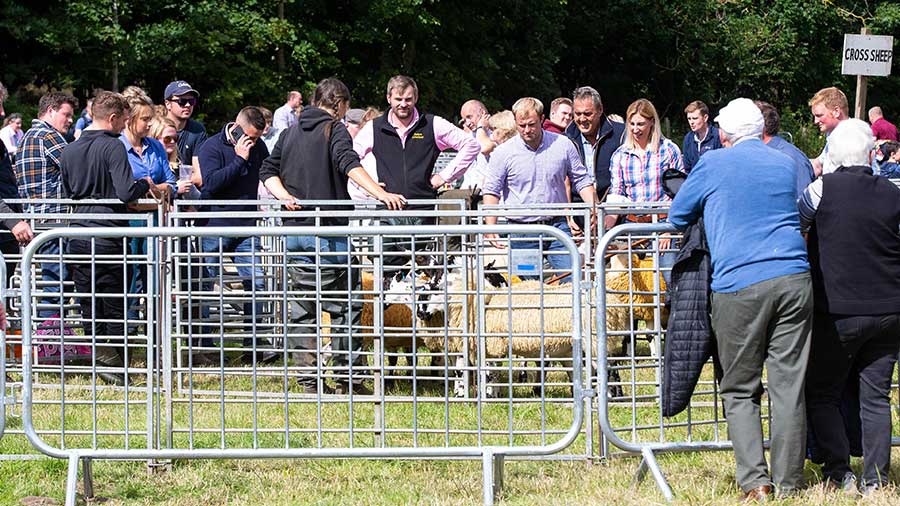Kinross Show sees crowd of 3,000 and strong livestock entries
 Hunter Weatherup won second place in the dairy calf class © Emma Cheape
Hunter Weatherup won second place in the dairy calf class © Emma Cheape More than 3,000 people attended the Kinross Show over the weekend, one of the few agricultural events able to go ahead in Scotland since the coronavirus pandemic.
Organised by Kinross Agricultural Society, the show on Saturday (14 August) was held at Loch Leven, in Perthshire.
A significant grant from Event Scotland meant the show could go ahead safely, with the society drafting in extra cleaning teams and staff.
There were more than 600 livestock entries, including more than 200 sheep.
See also: 32,000 log on to watch ‘behind closed doors’ Highland Show
The Texel class was particularly strong, where Kenny Duthie’s shearling ram, Hexel Dragon’s Den, was crowned champion, although Beltex, Blackface, Blueface Leicester, Shetland and Dorset sheep breeds were all on display.
There was also a strong cattle showing and Lynsey and Stuart Bett’s British Bull cross bullock, Hurricane, was the day’s supreme champion.
A range of working and show horse classes impressed the large crowd. Supreme horse was Collessie Alana, a Clydesdale filly owned by Ronnie Black.
Positive atmosphere

© Emma Cheape
Beef and sheep farmer Harold Geer, who is president of Kinross Agricultural Society, was determined to put on a physical show following the coronavirus pandemic that has restricted so many farm events across the country.
Show volunteer and sheep farmer Fiona Turnbull said: “Harold recognised the need for the farming community to come together again so didn’t cancel the show, but instead waited until restrictions eased a little and worked with Perth and Kinross council to agree a Covid plan for the day that enabled the event to go ahead safely.
“It was challenging, but came together well and the public and exhibitors were enormously grateful. It was a really positive atmosphere and the sun shone, which was important as everything was outdoors.”
All tickets and passes were sold in advance to comply with track and trace regulations and ensure there was minimal contact at entry points.
Temperature checks were carried out too and cleaning staff employed, who disinfected all public areas on a regular basis.
